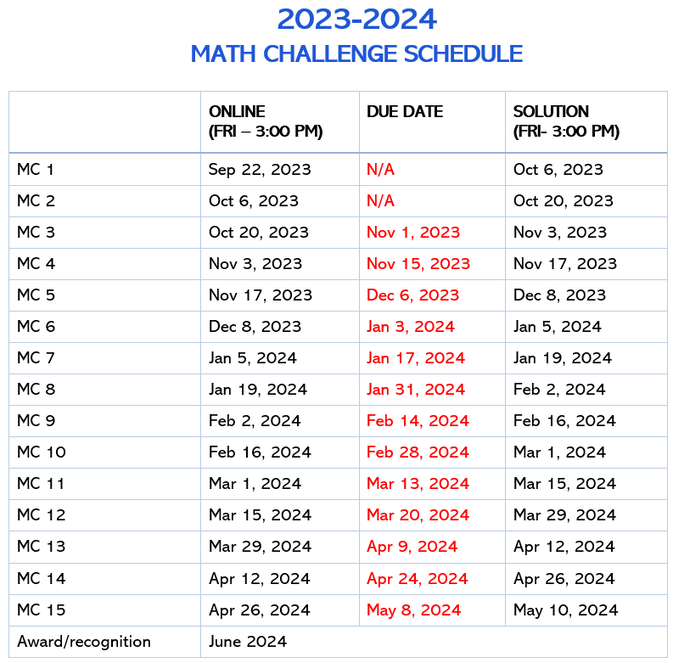DILLARD DRIVE MAGNET ELEMENTARY
Raleigh, NC
Math Challenge 2023-2024Chairperson: Suzanna Krutsch at [email protected]
|
General Information
- Math Challenge is free and no sign-up is necessary.
- All students are invited to participate.
- There will be 15 challenges throughout the school year, but we will begin with Challenge 3.
- Refer to the Schedule Calendar for dates on when the challenges and their solutions will be available on this webpage.
How to Participate
- GET the challenge. Click the blue button above (Current Math Challenge) to view the problems. Print them if possible. If not, turn your answers in on notebook paper. Also, check with your teacher. These will be available for you to work on for enrichment.
- SOLVE as many problems as you can. You can skip around and solve problems in any order. Use a math notebook or whiteboard to work out solutions independently or with a partner. We encourage you to discuss strategies with your classmates or family members.
- SUBMIT your answers in the box outside Mrs. Krutsch’s door (in the media center). (Please attach your work.)
- BE RECOGNIZED! All students who complete a challenge will be entered into a drawing for a small prize each month. Students who complete at least 9 challenges will be recognized in June.
Suggestions for Parents
- Read the problem with your child, possibly several times. Make sure that they understand what the problem is saying and what they’re asked to find.
- Ask questions:
- What is the problem asking?
- What information is given in the problem?
- What does this mean?
- How can you model this? (Drawing, manipulatives, etc.)
- Is this like another problem you’ve seen before?
- Would this be easier if other information were given?
- What would happen if you did this instead of that?
- What do you mean by that?
- How do you know that? What evidence do you have?
- Allow your child to spend time thinking about the problem – don’t expect them to get the answer in one sitting. Revisit the problem another day if your child gets stuck.
- Offer a suggestion (preferably in the form of a question) if your child really can’t figure out a direction to go. Let them ponder on it for a while.
- Encourage your child to try several methods to figure out the problem. Listen to your child’s suggestions and work from their knowledge and ability level.
- Know when it’s time to take a break. There’s a fine line between productive frustration and unproductive frustration.
- Work with your child on communicating the solution clearly. The solution is the combination of the numerical answer and the strategy.
- Don’t do the problem for your child. Let them experience the frustration of not getting the problem right away AND the joy of accomplishing something challenging.
- Be patient. Becoming a problem solver is a process that takes time and encouragement to develop. Look for baby steps of progress and celebrate them with your child.
- Have fun! If your child sees you enjoying problem solving, it’s likely that they’ll enjoy it too.
